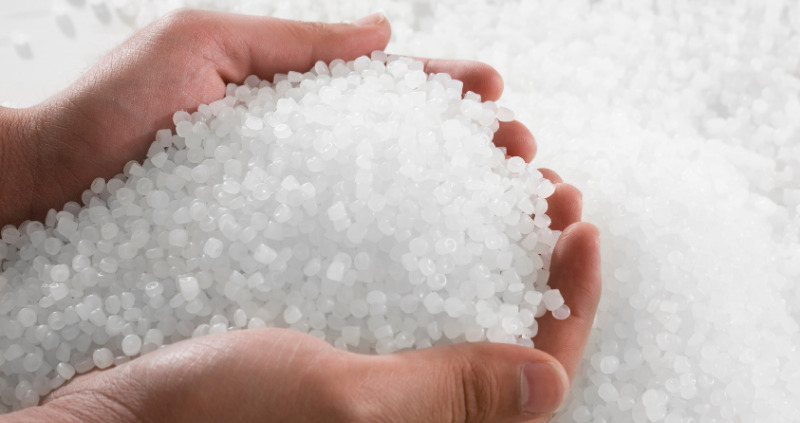




Plastic is an essential material used in all aspects of life, from packaging and containers to furniture and automobiles. It has a unique combination of properties that make it extremely useful for a variety of applications.
Plastic is lightweight, strong, durable, flexible, economical to produce, and easy to shape into any desired form. It can be made into many different colors and textures with the addition of various additives during its manufacturing process. Most plastics are also resistant to corrosion, chemicals, and other environmental factors, which makes them ideal for outdoor use or in situations where long-term exposure may occur.
In this article, we examine the properties of plastic as well as its importance for the packaging industry.
Plastic is a synthetic polymer material made from different combinations of monomers. Monomers are small molecules that can be linked together in various ways to create longer chains with specific properties and characteristics. These long-chain polymers form the basis for all types of plastics, which can be further customized by adding fillers, pigments, stabilizers, and other additives during their manufacturing process.
The most common type of plastic is thermoplastic, which becomes soft when heated and hardens again when cooled down. Thermoplastics are usually composed of two or more monomer units that are joined together through chemical bonds called ester linkages. Examples include polyethylene (PE), polypropylene (PP), and Polyvinyl Chloride (PVC). Other types of plastics, such as thermoset plastics have a permanent shape that cannot be changed once it has been set; these materials aren’t as commonly used in everyday applications due to their rigid nature.
Plastics offer many advantages over other materials because they possess unique physical properties such as being lightweight yet strong enough for certain applications, easy to mold into any desired shape or size, durable against corrosion and wear-and-tear compared to wood or metal products, cost-effective since they can be mass-produced and are resistant to water and most chemicals.
Plastic is an essential material for the packaging industry. Its lightweight and durable properties make it ideal for protecting goods during transport, storage, and display. Plastic can also be mass-produced quickly and cost-effectively compared to other materials, such as paper or glass, which require more labor-intensive processes.
One of the main benefits of plastic packaging is its ability to help extend product shelf life. For example, thin plastic films are often used in food packaging because they have superior moisture resistance that helps keep food fresher for longer periods of time without compromising taste or quality. Plastic containers with lids are also a popular choice since they provide an airtight seal that prevents spoilage from oxygen exposure while still allowing certain gases like carbon dioxide to escape when needed.
Another advantage of using plastic in packaging is its recyclability; most types of plastics can be recycled multiple times without losing any performance characteristics, which makes them environmentally friendly compared to other non-recyclable materials such as Styrofoam or aluminum cans. Additionally, by reusing existing plastics instead of producing new ones, manufacturers can save on costs related to raw material procurement and production operations which leads to lower prices for consumers overall.
Finally, plastic offers many design possibilities due to its flexibility; it can be easily shaped into any desired form and decorated with various colors, textures, or logos to help improve product recognition. This makes it an ideal choice for companies that require unique packaging solutions in order to stand out from the competition.
Overall, plastic is an essential material for the packaging industry due to its unique properties and cost-effective production. It’s lightweight yet strong enough to protect goods during transport while being easy to shape into any desired form or size. Plastic also has superior moisture resistance, which helps extend product shelf life without compromising taste or quality.
Furthermore, it can be recycled multiple times without losing performance characteristics, making it an environmentally friendly choice compared to other materials such as Styrofoam or aluminum cans. Finally, its design possibilities allow companies to create unique packaging solutions that help them stand out from competitors in terms of both appearance and functionality.